#https://www.techaheadcorp.com/services/mobile-application-development/
Explore tagged Tumblr posts
Text
youtube
Digital Marketing Services
TechAhead offers comprehensive digital marketing services that encompass various strategies and techniques, including SEO, social media marketing, content creation, and more, to help businesses establish a strong online presence and drive growth!
#https://www.techaheadcorp.com/#web application development#custom web development#web development services#responsive web development#mobile app development#software development#front-end development#back-end development#full-stack development#UI/UX design#web development company#website development#application development#e-commerce development#database development#API development#cloud-based development#CMS development#JavaScript development#PHP development#Python development#Ruby on Rails development#Java development#.NET development#Laravel development#TechAhead Corp#TechAheadCorp#techaheadcorp.com#Youtube
0 notes
Text
Hire Dedicated iot software development company Techahead
Techahead is one of the leading iot software development company in USA that has become a distinguished name in IoT application development. We are a software development company that creates excellent mobile applications used for controlling and drawing readings from IoT. Reach us for the best services. https://www.techaheadcorp.com/services/iot/
Company Address: TechAhead, Top Mobile App Development Company Los Angeles 28720 Roadside Dr, STE 254, Agoura Hills, California 91301 USA Phone :1-818-318-0727 Mail ID: [email protected] Website: https://www.techaheadcorp.com/
#iot app development#iot app development company#internet of things development company#iot companies#top iot companies#iot development company#iot software development company#IoT Product Development Company
0 notes
Text
Stock Trading App Development: Ready Yourself for the Next Wave of Madness
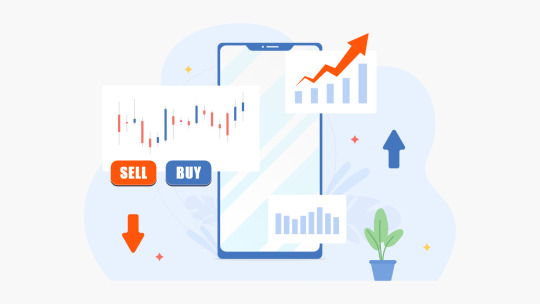
The stock trading market has been affected by the technological revolution, much like every other industry, in the past few years. The use of e-trade applications is commonplace, with many mobiles and web-based technologies being used in regular practice by brokers and investors. There are a variety of applications being developed and used by entrepreneurs and brokerage companies to automate their trading machinery and make the process easier.
Top mobile app development companies such as TechAhead, have taken the plunge for Stock Trading App Development to allow smart entrepreneurs to operate on a trading platform that can be controlled and maneuvered as per their needs. But why digitize trading, and why now?
Why Digitize Trading & Why Now?
DIY investing platforms like Robinhood have seen a clear rise in demand in the past year alone. Other stock trading applications such as eToro, StockTwits, and NetDania are increasingly being used to obtain the best results and tracking information. However, not all existing apps can have the exact trading solutions needed for specific industries and investors. This creates a huge demand for novel stock trading app development, which is likely to be the next big thing soon!
The peaking app development interests can also be seen with the increase in the use of hybrid apps that offer more trading options and sophisticated features than the existing ones. Currently, over 80% of the stock market operations are automated, creating a user-base for stock trading apps from different age groups. Busy investors are on board to pay significant amounts to use stock trading apps for various benefits, thus, a mutual monetary benefit is also in store. Stock Trading App Development is, thus, likely to bring a new wave of madness, and now is the time to ride this wave before it gets over-surfed!
Trading Apps Market Overview
Since the rise of the Robinhood app in 2017, the user-base for stock trading apps has been growing by 4 million users every year. Unlike the yester-generation of investors, millennials are more open to the optimum use of technology in stock trading if they are educated on the same. With the help of easy-to-use mobile applications, different aspects of the stock market such as day trading, long-term investments, investments by professionals, etc., can be catered to on a case-specific basis.
Why invest in Stock Trading App Development?
So, why should you invest in stock trading, and how exactly do such applications make money? Over 14.1 million users in the USA rely on online methods for stock trading, with the numbers constantly rising. Amongst these, there are many users that do not find a match of their required trading services as per interest or the solution they need. Finding the right solution for this potential customer base, thus, holds huge potential. Stock Trading App Development companies are consistently working to find solutions for this existing customer base. Your investment can provide this solution to resolve the following areas of common concern for a multitude of stock investors:
Mitigating Risk
The stock market functions prominently on advice and information suggested by brokerage companies to the investors. While some of these are highly relied upon, not all are as reliable as they seem. Users are moving towards rather relying on applications that offer a completely authentic and straightforward insight, thus, creating a huge potential and demand for stock trading app development.
Increase in Investors
With the current generation looking into more avenues to generate a passive income and startups on the rise in the market, there is an obvious increase in the number of investors who are now involved in stock trading. There are novice-level investors, professionals, or even part-time traders who have very specific interests, and there is a scope of niche application development to fulfill these requirements and solutions for a variety of stock traders.
Security and Performance
Having to invest your time in anything constantly is no longer desired by anyone. People much rather set-up their trading machinery and take a more automated approach to stock trading. Performance in the stock market has been a huge concern due to inadequate services of financial advisors and consequent unsatisfactory results. When taking advice, traders often end up sharing a lot of confidential and sensitive information that they would much rather have kept protected. This concern is largely eliminated with the development of stock trading applications that offer robust security and optimized performance at various user-levels.
Real-time alerts
Another major drawback of the trading domain is the lack of prompt updates on real-time changes in the market. These can be instrumental in accumulating great profits, or on the downside, leading to significant losses. Emerging trading apps have helped resolve this major concern with push notifications and alerts that can offer real-time updates on the rising and falling values of stocks to help people decide on their investments better.
Investment for Stock Trading App Development & What you can earn?
Arriving at the next pressing question - How much does it cost to develop a Stock Trading Application, and how exactly can you earn through it?
Well, there is no specific cost that can be estimated for the development of your application. It would really depend on what requirements you plan to meet, the basic functionality of the app, and the time period in which you plan to achieve all this.
Talking about the prospects to earn through your stock-based application, there are some straightforward avenues. The simplest way of earning through your application involves making premium accounts available to access trading features. You can also offer independent trading options at a certain fee or offer a combination of basic free services and additional commission-based ones that the user will gladly invest in. Some other novel avenues of earning through your app include offering cryptocurrencies and facilitating marginal trading. You can even earn interest from the user’s stocks and, cash similar to banking platforms.
Why Partner with TechAhead?
The Stock App market is awaiting a boom in the near future. The industry is expected to go completely digital, with over eighty percent of users already relying on technology for stock trading. With many more interests and user-cases to fulfill the app development market is need of investors can develop solutions to offer various trading options.
TechAhead, with its expertise in fintech application development, is looking to collaborate with novel ideas and investors looking to develop prospective trading solutions for their businesses. Have an idea for a stock-based app? Would you like to invest in it and see it take shape? TechAhead is your go-to!
Source: https://www.techaheadcorp.com/blog/stock-trading-app-development/
0 notes
Text
Top 10 Indian App Developers In 2020
There are many mobile application development companies in India. They Provide Complete Mobile Application Design, Development, and Deployment services in the right budget and standard quality.

Here is the list of Top 10 Indian App Developers In 2020:
1) Debut Infotech
Hourly Rate: < $15/hr.
Locations: India, Canada, USA
Website: https://www.debutinfotech.com/
2) India App Developer
Hourly Rate: < $25/hr
Locations: India, USA, Canada
Website: https://www.indiaappdeveloper.com/
3) Konstant Infosolutions
Hourly Rate: < $25/hr
Locations: India, UAE, USA
Website: https://www.konstantinfo.com/
4) Appinventiv
Hourly Rate: < $25/hr.
Locations: India, USA
Website: https://appinventiv.com/
5) TechAhead
Hourly Rate: $25 — $49/hr.
Locations: India, USA
Website: https://www.techaheadcorp.com/
6) Algoworks
Hourly Rate: $25 — $49/hr.
Locations: India, USA
Website: https://www.algoworks.com/
7) Innofied
Hourly Rate: $25 — $49/hr.
Locations: India, USA
Website: https://www.innofied.com/
8) QBurst
Hourly Rate: $25 — $49/hr.
Locations: India
Website: https://www.qburst.com/
9) Sourcebits
Hourly Rate: $100 — $149/hr.
Locations: India, USA
Website: https://www.sourcebits.com/
10) Y Media Labs
Hourly Rate: $150 — $199/hr.
Locations: India, USA
Website: https://ymedialabs.com/
This above IT companies List is very useful for you If you are searching for a reliable offshore development company in India for your dream project.
Want to Hire top app developers in India who are preferable in terms of core technical expertise, project cost, and available resources? Feel Free to Contact best app development companies in India now.
#Top 10 Indian App Developers In 2020#indian app developers#india app developer#best app development companies in India#Hire Top App developers in India#offshore development company in India#Mobile application development companies India#Top mobile app development companies India#Mobile app development companies 2020
0 notes
Text
Hotel digital transformation can help overcome the impact of COVID-19
Digital transformation is one of the most reliable ways to enhance customer experience and drive industry growth. And a service industry like hospitality needs to focus on ways to attract and retain more customers with their improved solutions.
COVID-19 has turned many industries upside down, and one of the most affected hospitality business. While many independent hotels got shut down, on the other hand, hotel chains suspended the inauguration of their upcoming hotel projects. But now, the world has started breathing with the current pandemic.
Travel is resuming, and the hotel industry is innovating to overcome losses. When the American Hotel & Lodging Association (AHLA) introduced the Stay safe guidelines, they suggested reducing direct contact with the use of new technologies.
Digital technology has played a prominent role for the benefit of hotels in past years, and the hotel industry has evolved evidently to offer unique experiences to its customers. While many hotels are leveraging digital transformation technology to welcome guests, several hotel chains are still in the early stage of adopting and implementing technology.
So let’s go ahead and see how hotel chains can implement digital transformation in the booking process, loyalty program management, room service, etc to help hotels innovate and reduce physical touchpoints with their guests without compromising on user experience.
Internet of Things (IoT)
The installed base of the current Internet of Things connected devices is forecast to reach 21.5 billion units by 2025. Hotels can adopt IoT in many ways:
Self Check-in: Letting customers self-check-in adds value to a great first impression. It reduces wait time and gives control to the customer. With the use of a mobile app, customers can have immediate access to the guest room. Mobile can also enable guests to have access to any vital information and allow them to request and update their requirements.
Digital key card: Keyless Entry Systems can facilitate a seamless stay experience. Offering guests an electronic key card on mobile devices is one of the smartest ways of saving time and money and ensuring security. It also helps the hotel to collect data on room preferences and enhance the guest experience in the future.
Smart and personalized rooms: IoT enables the guests to manage room amenities on their mobile apps. Lighting preferences, thermostat settings, media sets, or even integrating voice recognition, everything can provide, strong control to guests. A mobile can act like a remote to also manage window shades, and the lock system offering home-like comfort and experience.
AR/VR
When mobile apps like Pokemon Go went viral, every industry tried leveraging the potential possibilities to step up customer engagement through AR and VR. A few years ago, Marriot enabled it’s guests to travel far from their hotel rooms using Marriott VR Postcards. You too can make travel more seamless for your guests.
Virtual Reality: It is the best discovery that allows guests to take a tour of the property without leaving their house. Brochures are now outdated. No traveler is up for carrying papers with them. Therefore, sharing a complete tour of hotel rooms and hotel services like spas and shopping arcade will build trust and comfort for travelers.
Augmented Reality: AR can further make guests experience things and places alive. With the use of a smartphone, a user can know his exact location, explore historical places, nearby restaurants, view hotel services, and so many things that are far beyond our imaginations. With the adoption of AR and VR, Airbnb recently took their customer experience to a whole new different level. Hotels can also advance it’s AR features by introducing an interactive map that provides guests with more useful information.
Mobile apps
Mobile is the most convenient way to communicate seamlessly with your guests. It offers a wide range of possibilities to improve the customer experience.
Booking: It is the quickest way for travelers to book hotels with a mobile app with just a tap.
Communication: With the use of a mobile app, guests can easily communicate with the staff. Moreover, the staff can respond to the guest’s requests and update them on any required information. Apps can also help to send in-app notifications and encourage guests to use hotel services.
Customer loyalty program: Mobile apps are an excellent way to reward guests for every service they use. It keeps them engaged and helps to boost a long term relationship.
Staff productivity: Hotel staff can get more organized by managing their tasks through a mobile app. Managers can stay informed about the staff capacity and their day’s job so they can smartly manage their responsibilities and advance productivity.
Artificial Intelligence (AI)
For the service industry, Artificial Intelligence (AI) development is perhaps one of the best ways to improve the customer experience.
Chatbots: Chatbots development, powered by AI, can respond to guest’s questions, saving up the staff’s time. Not just this. Hotel chatbots analyze the data received from different sources like guests’ shopping history, spa or salon usage, saved payment methods, food choices, and other actions taken by guests while interacting with a hotel app. And this data can further offer a personalized experience. From a simple task of booking to acting as a ‘digital concierge’ to guests while they are at the hotel, chatbots can make guests way too comfortable and satisfied.
Data and Analytics
Data: With digital transformations like IoT integrations, mobile applications, there is a constant flow of data. Data is crucial in the hotel business to retain guests. Many hotels collect and use customer data to determine their preferences, what they like, and what they don’t. The process of data collection can benefit hotels to come up with new features or ideas to attract more and more guests based on their behavior.
Analytics: Through analytics of the data, hotels can identify key factors that help in providing a high-quality customer experience. Analytics can also help identify the guests who are likely to return frequently and guests who are likely to spend more on upgrades and purchasing other amenities from the hotel. The hotel will be able to make smart decisions focussing and improvising their primary areas of business and continue to offer high value to its guests.
Final Words
Digital transformation is already here, and many hotels in the industry are now adopting it to upgrade their services. In the coming years, hotels that don’t adopt technology in their business might go outdated. Summarising the above points let us highlight some of the biggest advantages to hotels with the use of digital transformation.
Reduce wait time
Saves time and money
Make communication smoother and improve relationship building
Hotels get to know their customers
Improvement in business performance
A high rate of repeat customers
So, it’s time for you to make your hotel smart and lift your business post-COVID 19.
ABOUT US
WHO WE ARE?
We are a UK (London) based internet company managing projects all across the United Kingdom. With over 15 years combined experience and a team of 50+ web professionals on hand to assist with our projects your business is in the right hands
what we do?
Local Web Setup will help you build your online brand and guide you in the right direction to organically grow your business. We work remotely with our customers so no matter where you are we can still help your business. We offer Bespoke Website Design, CRM Web Applications, SEO, Social Media, Logos and a UK Support Team.
social media setup
We are a full service SEO agency . Our social media experts can help you establish your business objectives, identify your target audience, create engaging and share-worthy content and finally integrate your social media with all other aspects of your online presence.
logo Design
GET YOUR CUSTOM LOGO DESIGNED BY OUR PROFESSIONAL LOGO DESIGNERS A Logo is the eye of your branding make it stand out and match your business brand and creates a long-lasting impact on the stakeholders and general audience We will quote you depending on your business needs we wont charge you for more than you need.
Credit & Source – https://www.techaheadcorp.com/blog/hotel-digital-transformation/
0 notes
Text
The Future of Finance: Key Tech Trends Reshaping Banking

Over the past decade, technological advancements have catapulted fintech from the periphery to the forefront of financial services. This rapid growth has been driven by the dynamic expansion of the banking sector, rapid digital transformation, shifting customer expectations, and the strong backing of investors and regulators. Fintech companies have fundamentally reshaped financial services with their innovative, differentiated, and customer-centric solutions, agile strategies, and cross-functional expertise.
As of July 2023, fintech firms listed on the public market reached a combined market capitalization of $550 billion, double their value from 2019. At the same time, the sector boasted more than 272 fintech unicorns, collectively valued at $936 billion, a significant increase from just 39 firms five years ago.
The growth of these strategies and the swift adoption of fintech are largely driven by their ability to address critical gaps within traditional banking. Fintech companies offer more accessible, intuitive ways for consumers to control and manage their finances, providing solutions that banks have historically overlooked. Their seamless integration into everyday life, through mobile app development and web development, has significantly elevated convenience and customer engagement.
In this blog, we will explore the groundbreaking technologies shaping the future of the financial sector. We will also provide you with the overall technology trends in the finance industry that are reinventing the industry.
Key Takeaways:
Fintech is facing an amazing innovation in the industry. People are more leaning towards easy access to applications that can be downloaded on phones or accessible on browsers.
Innovations like AI-powered apps, IoT integration, blockchain, and mobile payment systems are reshaping the finance industry.
Many digital finance companies are leveraging AI to boost customer satisfaction and improve efficiency.
Despite the growing trends towards fintech, a considerable number of customers still appreciate the availability of physical branches.
Overview of the Evolving Banking Technology Landscape

Banks face increasing pressure due to changing customer preferences, complex regulations, fintech competition, and rising liquidity costs. The digital transformation is rapidly reshaping the industry, pushing banks to adopt the latest technological innovations to stay competitive.
Simultaneously, regulators are placing greater emphasis on technological capabilities, with a focus on data enhancement and fintech integration. Deloitte highlights that banks must align these innovations with strategic planning and robust governance to meet regulatory expectations.
Below is an in-depth look at the trends, technologies, and challenges shaping the future of banking and fintech.
Digital-Only Banking: A Game Changer
Digital-only banks, or neobanks, operate exclusively through online platforms, eliminating the need for physical branches. They offer seamless digital experiences with mobile deposits, lower fees, and competitive rates.
The demand for digital banking is surging as more consumers prefer efficient, on-the-go financial solutions. According to the American Bankers Association, digital banking is now preferred by 71% of consumers, with millennials and Gen Z leading the trend.
Traditional banks are facing a decline, with over 2,555 branches closing in the U.S. in 2023 alone. This shift signifies a growing need for banks to adapt to digital demands.
Surge in Digital Payments
Digital payments have become integral to modern consumer behavior, experiencing a spike in adoption post-pandemic. McKinsey’s 2023 survey reveals over 90% of consumers now use digital payment methods.

Expanding Fintech Regulation
Fintechs are facing stricter regulations as they expand their role in delivering essential financial services. Jurisdictions worldwide are tightening rules to ensure fintech innovations align with financial stability requirements.
Navigating these complex regulations can be challenging for fintechs operating across multiple regions. A strategic partnership with an experienced fintech developer like Leobit can simplify compliance with key standards like GDPR, CCPA, and OWASP.
Generative AI: Transforming the Banking Landscape
Generative AI (GenAI) has the potential to add between $200 billion to $340 billion in value to the banking sector. GenAI automates tasks like data entry, fraud detection, credit assessments, and personalized financial advice, revolutionizing operations.

Blockchain Innovations in Banking
Blockchain technology’s decentralized ledger is revolutionizing banking by enhancing transaction security and transparency. Beyond payments, blockchain’s applications include trade finance, cross-border payments, and smart contracts, streamlining financial operations.

Real-Time Payments (RTP) on the Rise
Real-time payments (RTP) are becoming the norm due to the demand for instant settlements and cloud-based transaction solutions. The global RTP market is projected to grow at a rate of 35.5% annually, driven by technological innovations and competitive pressure.
Challenges like legacy infrastructure and fragmentation persist, prompting 77% of financial companies to consider outsourcing RTP capabilities to accelerate implementation.

Personal Finance Apps and Consumer Empowerment
Personal finance apps have seen massive growth, with users seeking tools beyond basic budgeting to include investment insights. The market is set to rise to $1.57 billion by 2025 as users prioritize apps offering personalized financial advice.
Fintechs can leverage user data from these apps to offer tailored insights, meeting the demand for more personalized financial solutions.
Buy Now, Pay Later (BNPL) Adoption Expands
BNPL services offer flexible payment options, rapidly gaining popularity across all age groups.
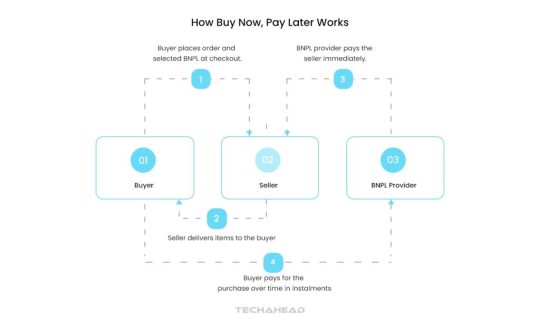
Key Technologies That Will Reinvent the Financial Industry

In the next decade, there are some technologies that will be the digital transformation within the financial industry. Technological innovation will act as the backbone of fintech, fueling the emergence of disruptive business models.
Artificial Intelligence (AI) Fuels Unprecedented Value Creation
AI is poised to unlock up to $1 trillion in annual value for global banks. Financial institutions will adopt an AI-centric strategy to counter the growing influence of tech giants on their market share. AI’s evolving capabilities will enable financial firms to harness data-driven insights and sharpen their competitive edge.
AI will facilitate automatic factor discovery, identifying key drivers of financial outperformance. This will revolutionize financial modeling, making it more precise and reliable. AI-powered knowledge graphs and graph computing will also play a critical role in analyzing intricate financial networks, revealing hidden patterns by connecting diverse data sources.
Enhanced privacy-centric data analytics will limit data usage to only essential, sanitized information for model training. Techniques like federated learning will boost security by processing data locally instead of centralizing it. Advanced encryption methods, zero-knowledge proofs and secure multi-party computations will set new benchmarks in consumer data protection.
AI’s impact will span across all functions within the financial sector. Customer-facing innovations will include personalized offerings, predictive analytics, AI-driven chatbots, automated trading, and intelligent robo-advisors. On the backend, AI will streamline processes with smarter automation, natural language processing for fraud detection, and improved data handling.
Currently, many banks use AI selectively, focusing on specific tasks. However, industry leaders are now adopting a holistic AI approach across digital operations. This strategy leverages behavioral data to gain insights, driving new opportunities in ecosystem-based financing, where banks partner with non-financial entities to deliver broader customer experiences.
The emergence of “AI-first” institutions will push operational efficiency to new levels, emphasizing extreme automation. By reducing manual tasks and enhancing decision-making through AI diagnostics, banks will optimize performance. AI-first banks will operate with the agility of digital-native companies, launching innovations within days or weeks and integrating seamlessly with external partners for holistic customer solutions.
Blockchain will Disrupt Established Financial Protocols
Blockchain and Distributed Ledger Technology (DLT) are set to revolutionize traditional financial frameworks. DLT enables secure, synchronized data sharing across multiple databases, enhancing transparency and efficiency within the financial ecosystem.
DLT systems often leverage blockchain’s cryptographic algorithms to ensure data integrity and immutability across their networks. This technology records, synchronizes, and validates transactions without a central authority, building trust among network participants.
Blockchain’s versatility in supporting ecosystem financing lies in its distributed nature, storing data in multiple locations simultaneously. With cross-chain technology advancing, blockchain interoperability will connect different protocols, streamlining operations across various sectors like payments and supply chain logistics.
Blockchain’s Role in Policy and Regulation
Governments are actively exploring blockchain for digital currency and regulatory frameworks. About 60% of central banks are studying Central Bank Digital Currencies (CBDCs), indicating a shift toward digital monetary systems.
Notable Blockchain Applications

Real-time transaction settlement: Banks now use smart contracts to streamline transaction settlements, boosting speed and accuracy. Blockchain facilitates efficient securities trading, lending, and cross-border transactions, enhancing global capital flows and reducing costs.
Digital asset support services: Investors seek DLT solutions for tokenization, cryptocurrency exchanges, and secure custody services. This includes encryption protocols like key escrow, ensuring secure digital asset management.
Authentication via zero-knowledge proofs: Blockchain enables seamless identity verification while protecting sensitive data. Customers share only necessary information, enhancing privacy in digital interactions across health and government services.
Decentralized Finance (DeFi): DeFi platforms eliminate intermediaries using deterministic smart contracts for loans, investments, and trading. These contracts reduce counterparty risks, increase market efficiency, and offer transparency in real time. DeFi’s potential to disrupt traditional value chains is reshaping the financial landscape. As regulations evolve, DeFi is set to unlock new opportunities, transforming finance through blockchain’s decentralized architecture.
Cloud Computing will Liberate Financial Services Players
Cloud computing will empower financial institutions, unlocking new efficiencies and cost-saving opportunities. By 2030, it’s expected to add over $1 trillion in EBITDA for the top 500 global companies.
Effective cloud migration enhances application development and maintenance efficiency by 38%, cuts infrastructure costs by 29%, and reduces downtime by nearly 57%. This efficiency lowers technical violation costs by 26%, boosting overall productivity and reliability.
Cloud platforms also elevate security through integrated DevOps principles. This approach embeds security throughout development, ensuring a consistent, cross-environmental tech stack, and reducing potential technical risks.
Key Cloud Service Models for Financial Institutions

Financial firms should focus on three primary cloud service models: public, hybrid, and private clouds.
Public Cloud: Owned by service providers, it offers scalable resources to various organizations, reducing infrastructure expenses.
Hybrid Cloud: Combines public and private cloud elements, ensuring flexibility and optimized performance through seamless integration.
Private Cloud: Exclusively dedicated infrastructure for individual clients, ensuring higher control, data privacy, and security.
Understanding these cloud models enables financial institutions to choose solutions that align with their specific needs and risk appetites.
IoT to Revolutionize Trust in the Financial Sector

The Internet of Things (IoT) is finally gaining momentum, significantly impacting financial systems. IoT consists of three layers: smart sensor systems, communication networks, and application support.
Components of IoT in Finance
Smart Sensor Systems: RFID labeling remains underutilized in automating asset identification and logistics. This potential automation boosts operational efficiency by streamlining inventory and supply chain processes.
Communication Networks: IoT connectivity is expanding, integrating devices across wired, wireless, and low-power wide-area networks. Technologies like Near-Field Communication (NFC) and Narrow-Band IoT enhance real-time data transmission for financial services.
Embedded Systems: Advanced embedded technologies enable intelligent object communication, paving the way for more responsive and data-driven financial operations.
ESG and IoT Being the Perfect Match
Environmental, Social, and Governance (ESG) factors now influence investment strategies and regulatory compliance. IoT plays a pivotal role in monitoring energy efficiency, essential to achieving carbon neutrality targets. Carbon trading will increasingly rely on IoT metrics, opening new financial avenues for proactive businesses.
IoT Transforming the Insurance Industry
IoT is reshaping insuretech by enabling precise risk assessment and streamlined processes. Auto insurers traditionally used general data like age and location to set premiums. Now, real-time data on driving behavior directly informs risk profiles, allowing for more tailored policy pricing.
Frequent customer interactions facilitated by IoT enhance engagement, enabling insurers to provide value-added services. This shift transforms the insurer’s role from a passive service provider to an active participant in customer journeys, improving loyalty and satisfaction.
IoT-Driven Innovation in Banking
IoT is refining risk management in banking through enhanced transparency in inventory and property financing. Integrating IoT with blockchain ensures that financial records align with real-world transactions, creating a robust trust ecosystem.
In logistics, IoT revolutionizes trade finance by enabling precise tracking of goods flow. This transparency allows banks to innovate with products like on-demand liquidity and services powered by smart contracts, reducing transaction times.
SaaS, and Serverless Architecture Lower Entry Barriers in Fintech
Current digital economy is speeding and scaling vital for new businesses striving to gain a competitive edge. Open-source software, serverless architectures, and SaaS solutions have become essential for both technology startups and traditional financial institutions in the Fintech space.
Key Benefits of SaaS and Serverless Architecture
Software-as-a-Service (SaaS): SaaS offers businesses on-demand access to software without requiring ownership or maintenance of infrastructure. This approach significantly reduces operational overhead, allowing firms to focus on core activities instead.
Serverless Architecture: By eliminating the need for physical servers, serverless setups optimize resource allocation, linking costs directly to executed code. This model promotes scalable growth, ensuring efficient performance without unnecessary expenses.
Cost Efficiency: Serverless technology minimizes expenses since billing is based on actual software usage, not continuous server operation. This flexible cost model enhances profitability by preventing idle resource waste.
No-Code/Low-Code Platforms Revolutionize Application Development

No-code development platforms (NCDPs) and low-code platforms enable both developers and non-technical users to build applications effortlessly. These platforms utilize intuitive graphical user interfaces, like drag-and-drop features, reducing reliance on traditional coding.
Technical Foundations of No-Code Platforms
Component Reuse and Assembly: NCDPs leverage component reuse principles, streamlining software engineering through pre-built modules and visual development tools.
Domain-Specific Language (DSL): These platforms use DSL to simplify coding, enhancing accessibility for non-developers while maintaining functional depth.
Design Thinking Integration: The platforms incorporate design thinking, enabling user-centric application development that aligns closely with business needs.
Cloud Integration and DevOps: No-code solutions are tied to cloud technologies and DevOps, tackling issues like scaling and high-availability environments efficiently.
Accelerating Cloud-Based Application Development
Organizations utilize NCDPs to speed up cloud application development while synchronizing technology with evolving business strategies. Automated workflows, like audit trails and document generation, ensure seamless compliance in regulated sectors.
Real-World Impact on Financial Services
For financial institutions, these platforms enable agile responses to dynamic market conditions, improving time-to-market for solutions. This capability is invaluable in sectors where speed and compliance are critical for maintaining a competitive edge.
Industry Investments in No-Code Platforms
Tech giants are heavily investing in these innovations. Google Cloud’s acquisition of AppSheet and investment in Unqork highlight the growing reliance on low-code and no-code technologies.
Unleashing R&D Capabilities
No-code/low-code platforms liberate research and development resources, allowing institutions to manage multiple projects simultaneously. This flexibility equips traditional financial firms to match the innovation pace of fintech startups.
Competitive Advantage in Digital Transformation
These platforms provide the scalability needed for enterprise-level digital transformation, bridging the gap between traditional finance and agile fintech disruptors.
Conclusion
The financial sector is undergoing a transformative shift, driven by advancements in fintech. Fintech innovations are not only redefining convenience and accessibility in financial services but also setting new standards. Like for personalized experiences and efficient operations.
By embracing emerging technologies like Generative AI, cloud computing, and blockchain, financial institutions can unlock new opportunities. The future of the finance industry lies in a seamless blend of technology-driven innovation and customer-centric strategies. With fintech leading the way in shaping a more connected, efficient, and secure financial landscape.
Source URL: https://www.techaheadcorp.com/blog/the-future-of-finance-key-tech-trends-reshaping-banking/
0 notes
Text
Custom App Development: The Secret to Enterprise Agility and Innovation

As businesses across industries pursue digital transformation, the demand for custom app development services is rapidly increasing. Today, it’s rare to find a business without a mobile or web app. These solutions offer strategic advantages, including improved customer experience, revenue generation, and greater operational efficiency. By 2028, the global custom software development market is expected to surpass $100 billion.
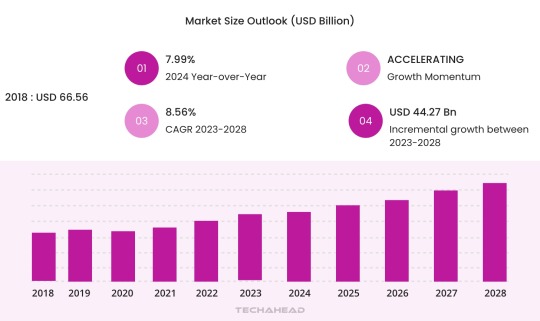
In this article, we will explore everything related to custom app development—what it is, the types of custom software, its benefits, and the process of developing a tailored application for your business needs. We will also provide insights into the costs associated with building a custom app.
What is Custom App Development?
Custom app development refers to the process of designing and building applications specifically tailored to meet the unique requirements of a business. Unlike off-the-shelf solutions, which offer generic features for a wide audience, custom apps are developed to address specific challenges, workflows, or objectives of the business.
By focusing on a company’s exact needs, custom app development ensures that the application aligns perfectly with business goals, enhances efficiency, and offers a personalized user experience. It also provides flexibility for future growth, allowing the app to scale and adapt as the business evolves. These custom solutions often integrate seamlessly with existing systems, ensuring smooth operations and better overall performance.
Why Should Businesses Opt for Custom App Development?
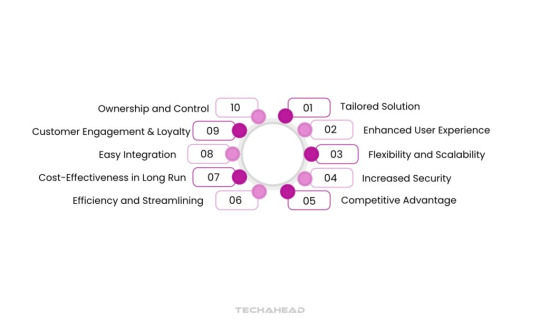
With more than 8.9 million mobile apps worldwide and an average of 1,828 new apps launching daily on the Google Play Store, the app market is bursting with opportunities. However, many apps struggle to gain user traction despite the surge. This is often because they fail to meet evolving user needs, with outdated features and technologies causing them to lose relevance.
Staying ahead requires constant innovation. Businesses must frequently update and customize apps to align with changing market trends. Falling behind in adopting new technologies often results in missed business opportunities. This is where custom app development becomes critical. It enables businesses to create user-centric and market-ready applications that stand out.
Custom app development empowers businesses to create tailor-made solutions that resonate with their audience. Unlike generic apps, custom apps focus on providing precise solutions to meet specific business challenges. They scale, evolve, and improve customer satisfaction, ultimately giving businesses an edge in the competitive app marketplace.
In fact, businesses worldwide are increasingly opting for custom app development services. According to Grand View Research, the global custom app development market is expanding to hit $146.18 billion by 2030, growing at a CAGR of 22.4%. Emerging tech trends like artificial intelligence, AR/VR, and machine learning are further driving this growth. Here’s a closer look at why custom app development is a smart decision for your business.
Tailored Solution
Custom app development offers solutions specifically designed to meet a business’s unique needs. Developers create these apps to address specific challenges, exclude unnecessary features, and ensure essential functionalities are included. This bespoke approach is akin to tailoring a suit to fit perfectly, enhancing both operational efficiency and effectiveness.
Enhanced User Experience
Custom apps are designed to deliver a personalized experience for users, creating an interface that aligns with customer expectations. This thoughtful design fosters a seamless user experience, making the app more engaging and intuitive. The result? Users feel more connected and are more likely to return.
Flexibility and Scalability

Custom apps are designed with flexibility in mind, allowing them to grow with your business. They can be easily updated or scaled to accommodate new features or evolving business needs. Similar to an adaptable tool, custom apps ensure your business remains agile and primed to seize new opportunities.
Increased Security
Security is a critical concern for businesses. With custom app development, you can implement advanced security measures tailored to your specific requirements. This level of control allows you to safeguard your business data against threats, providing peace of mind and ensuring regulatory compliance.
Competitive Advantage
A custom app tailored to your business can set you apart from competitors. It demonstrates a commitment to delivering a superior customer experience and positions your business as innovative and forward-thinking. This competitive edge can help you attract more customers and drive business growth.
Efficiency and Streamlining

Custom apps are designed to automate and streamline business processes, reducing operational inefficiencies. By integrating these apps into your workflow, you can improve productivity and focus on strategic growth. Custom apps function like digital assistants, helping you save time and resources.
Cost-Effectiveness in the Long Run
Although the initial investment in custom app development may be higher, the long-term benefits outweigh the costs. Custom apps are designed to meet your business needs, reducing reliance on multiple tools and software. This consolidation saves money in the long run and ensures that your app remains relevant.
Easy Integration
Custom apps are built to integrate seamlessly with your existing systems and software. This ensures that all your tools work harmoniously together, streamlining processes and enhancing efficiency. It’s like fitting together perfectly matched puzzle pieces, making operations smoother and more coherent.
Customer Engagement and Loyalty
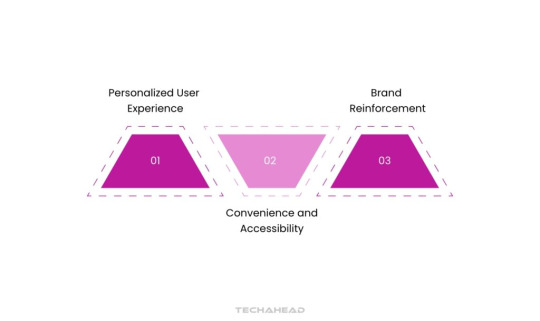
Custom apps foster customer loyalty by providing a personalized and convenient user experience. When customers find it easy to navigate and use your app, they are more likely to remain loyal to your brand. A custom app becomes a valuable asset in building lasting customer relationships.
Ownership and Control
Custom app development gives you complete control and ownership over the app. This means you can make decisions without being constrained by external limitations. Owning your app allows you to shape it according to your business vision and goals, ensuring that it continues to serve your evolving needs.
How to Build a Custom App Development?
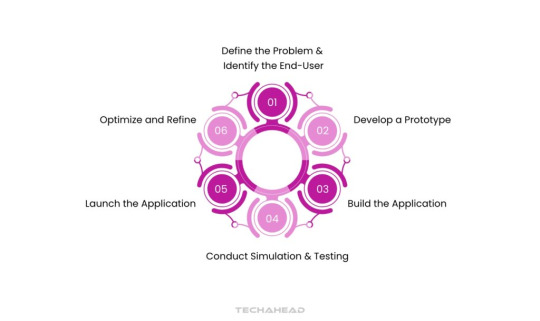
Custom app development involves unique strategies but follows core app development methodologies. Here’s a detailed guide to developing custom applications from scratch.
Step 1: Define the Problem and Identify the End-User
Every app is designed to address a specific problem or its users. The first critical step in custom app development is understanding the problem and the app’s role in the end user’s life. This helps create a solution that directly addresses their needs, ensuring the app’s relevance and usability.
Step 2: Develop a Prototype
Visualizing the app’s structure is essential for custom app development. At this stage, you outline the user interface, define the core functionalities, and determine the data required to fulfill user requests. The prototype serves as a blueprint, helping developers stay focused on the app’s primary goals and user flow.
Step 3: Build the Application
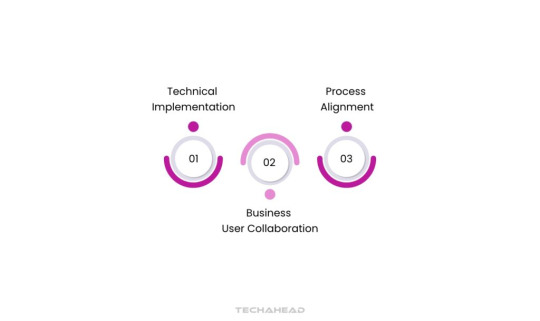
Now comes the technical build. This step involves constructing the application on platforms such as low-code/no-code environments. The business user’s expertise becomes invaluable here, guiding the development team through how requests should be processed and resolved. Custom app development requires precision in creating an app that aligns with your business processes.
Step 4: Conduct Simulation and Testing
Testing is a vital phase in custom app development. Here, the app is rigorously simulated to identify potential issues or inefficiencies. This phase ensures that the app is bug-free and optimized for real-world usage. Every error caught during testing prevents bigger problems post-launch, making this step crucial for quality assurance.
Step 5: Launch the Application
This is the moment of truth. Going live means deploying the custom app to a production environment where users can interact with it. Monitoring the app closely during this phase helps detect any bugs or errors that may have slipped through. It’s crucial to ensure the application operates smoothly in real-time conditions.
Step 6: Optimize and Refine

The process doesn’t end with the launch. Post-launch optimization is essential in custom app development. This involves tracking performance metrics, identifying areas for improvement, and making subtle adjustments. Continuous optimization ensures the app remains efficient, effective, and aligned with evolving user expectations. Using end-to-end performance monitoring tools, particularly for complex builds like Java applications, helps fine-tune performance before and after going live.
Custom app development requires meticulous planning, execution, and ongoing refinement. Each step is vital in delivering a product that solves problems, enhances user experience, and supports business growth.
What Challenges One Face While Custom App Development?

Custom app development is a multifaceted process that presents numerous challenges. You should be aware of the coming challenges that can be a hurdle in your project. Let’s look into some common obstacles businesses face during the period of their custom application development.
Tech Talent Shortage
Whether developing in-house or outsourcing, finding the right developers remains a significant hurdle. As in-house development can lack talent, outsourcing a mobile app development company is capable, as they have many talents of different tech stacks.
According to a 2023 survey by Infragistics, over 37.5% of participants reported difficulties in hiring suitable talent for their development projects. The global tech talent shortage further complicates the process. Identifying and onboarding the right candidates can take months, with no guarantee of long-term success.
Outsourcing custom app development offers a more streamlined approach. Mobile app development companies typically have the relevant expertise and can ensure the project’s success through established processes. A signed contract with an outsourcing partner reduces risks and shifts the burden of talent management onto the provider, allowing businesses to focus on core objectives.
Managing Development Costs
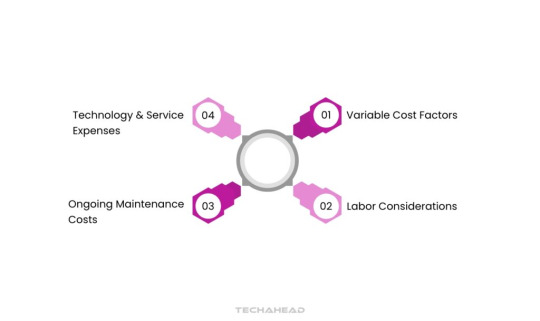
Estimating the cost of app development can be challenging due to numerous unpredictable variables. Factors like adding new features mid-development or encountering bugs during testing can cause delays, increasing costs.
Geographic location and skill set also influence labor expenses, while specialized technologies or third-party services, such as cloud computing or advanced security measures, further drive up costs. Additionally, post-launch maintenance and updates must be considered, as these ongoing expenses impact the app’s total cost of ownership.
Technical Complexity
Technical complexity is an inherent challenge in custom app development. Your business must balance incorporating desired features with ensuring scalability for future growth.
Custom mobile app developers must also stay updated on the latest technologies, security protocols, and compliance requirements. The changes that are coming in the technology for advancement can complicate the development process, requiring developers to adapt quickly to emerging trends.
Timely Delivery
Delivering custom apps on time is another common challenge. Custom app development often encounters unpredictable delays due to scope changes, technical issues, or unforeseen bugs. Managing these risks requires effective project management and agile development practices. Clear communication among developers, project managers, and clients is essential to keeping the project on track and ensuring timely delivery.
Use Cases of Custom App Development
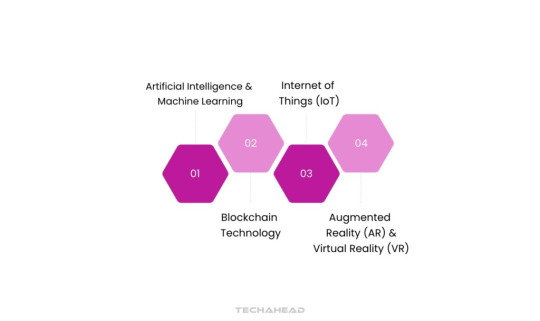
As the landscape of custom app development evolves, several emerging technologies are significantly influencing how applications are built and optimized. Below are the key technologies driving this transformation.
Artificial Intelligence and Machine Learning
Although not entirely new, artificial intelligence (AI) and machine learning (ML) are becoming more integrated into custom app development. These technologies allow mobile apps to analyze data, learn from user interactions, and automate decision-making processes.
AI can enhance custom apps by personalizing content recommendations, improving search functionalities, and automating customer service with intelligent chatbots. For example, Netflix uses AI to suggest shows based on viewing history, while Google Photos uses AI for object recognition in images. Machine learning algorithms continuously improve app performance based on user behavior, resulting in a more intuitive and seamless user experience.
Blockchain Technology
Blockchain technology is gaining traction in custom mobile app development, especially in industries like finance and supply chain management. It provides heightened security and transparency by creating a decentralized, immutable ledger of transactions. This eliminates single points of failure, making it much harder for data breaches to occur.
For custom apps handling sensitive transactions, such as banking or healthcare apps, blockchain is crucial for ensuring data integrity and trustworthiness.
Internet of Things (IoT)

The Internet of Things (IoT) extends the functionality of custom apps by enabling them to interact with external sensors and devices. Custom app development that leverages IoT can transform industries like healthcare, home automation, and industrial management by allowing real-time data collection and control over smart devices.
For instance, a fitness app integrated with IoT can gather real-time data from wearables, while home automation apps can control smart thermostats or lighting systems remotely, enhancing user convenience and efficiency.
Augmented Reality (AR) and Virtual Reality (VR)
Augmented reality (AR) and virtual reality (VR) are transforming custom app development by providing immersive and engaging user experiences beyond gaming. AR overlays digital content in the real world, making it invaluable for retail apps that allow users to virtually try products. For instance, AR can enable users to test makeup shades through their device’s camera before making a purchase.
On the other hand, VR offers a completely immersive virtual environment, ideal for industries like real estate and training. Virtual tours of rental properties or immersive training simulations are examples of how VR can enhance user experience, saving time and improving engagement.
How Much Does Custom App Development Cost?
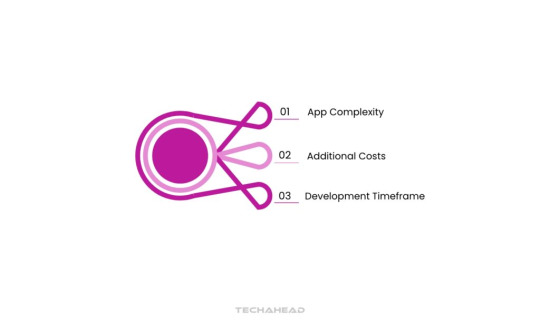
The cost of custom app development can vary widely depending on several factors, including the complexity of the app. The features required, and the geographic location of the development team. Below are some key cost factors to consider.
App Complexity
Simple apps (e.g., basic functionality, no backend, or minimal user interaction) can cost between $10,000 to $30,000.
Moderately complex apps (e.g., multiple features, databases, or backend integration) typically range from $30,000 to $80,000.
Highly complex apps (e.g., advanced features like AI, machine learning, or IoT integration) can go upwards of $100,000 to $300,000 or more.
Additional Costs
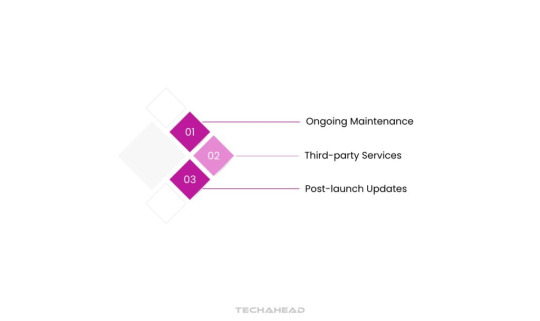
Ongoing maintenance: Approximately 15-20% of the initial development cost per year.
Third-party services: Integration with services like cloud hosting, analytics, or security can add to the budget.
Post-launch updates: Continuous feature enhancements and bug fixes will also contribute to ongoing costs.
Development Timeframe
The more complex the app, the longer it takes to develop, which directly impacts the cost. Simple apps can take around 2-4 months, while complex apps may take 6-12 months or longer.
In general, building a custom app can range from $30,000 to over $300,000, depending on your specific needs.
Conclusion
As the mobile app landscape evolves, businesses must consistently update and personalize their apps to stay aligned with emerging trends. While the market is crowded with apps, those addressing persistent challenges tend to achieve more success. Investing in custom app development ensures sustainable business results and future-proof solutions.
This guide underscores the positive sides of creating a high-quality, impactful custom app. If you are still looking into the challenges and complexity involved, it is advisable to engage with a seasoned professional to build your app.
Partnering with a trusted company like TechAhead can help you develop a custom mobile app designed to meet specific business needs, from the ground up.
Source URL: https://www.techaheadcorp.com/blog/custom-app-development-enterprise-agility-innovation/
0 notes
Text
Mobile App Development Services

Mobile App Development Solutions: Transforming Ideas Into Innovative Mobile Experiences
The mobile application development page of TechAhead Corp showcases the company's expertise in creating innovative and user-friendly mobile apps. The page highlights their extensive experience in developing mobile apps for various platforms, including iOS, Android, React Native, and Flutter. It also discusses their mobile app development process, design and testing services, and mobile app consulting. The page aims to demonstrate TechAhead Corp's commitment to delivering high-quality mobile app solutions to clients across industries!
Benefits of mobile app development
There are more than 3 billion smartphone users in the world and around 300 million in the USA alone. If your business doesn’t have a presence in the mobile ecosystem, then, frankly speaking, your business is buried deep in the cave where no one can reach it. Having a mobile app is no more a luxury, it has become a necessity for every business because your customer is on the mobile!
How to choose a reliable partner for mobile app development services?
The only way to find a credible and trusted mobile app development company for Mobile App Development Services is checking out their past projects and client satisfaction. Listings on top ranking sites such as Clutch are an added benefit to finding how reliable your mobile app development company is!
Why TechAhead for mobile app development?
With 13+ years of solid experience in the mobile app development niche, TechAhead is ranked among the top mobile app development companies in the world. In the last decade, we have delivered 2000+ mobile apps and digital transformation platforms to some of the biggest brands, globally!
What are the top mobile apps developed by TechAhead?
TechAhead has developed and delivered 2000+ mobile apps for 700+ global brands that include the likes of American Express, Audi, Disney, AXA, ICC, and more. We have served Fortune 500 companies and enterprises, as well as startups and SMEs who wish to dominate the mobile app ecosystem!
What about data security and integrity of mobile apps?
Our mobile app development methodology is heavily inclined towards ensuring the complete safety and security of your data, users’ data, and critical business intellectual property. We ensure that crucial processes such as authorizations & authentication are encrypted, and behind firewalls for 100% safety of your data!
How to get mobile app maintenance services after launch?
TechAhead will not only assist you in conceptualizing and launching your mobile app, but will also offer round-the-clock app monitoring and maintenance services so that your app performs seamlessly, and without any bugs and anomalies. We will also help our clients in optimizing the app’s performance and ensuring consistent results!
At TechAheadCorp, we are dedicated to providing exceptional mobile application development services. Our experienced team of developers and designers collaborates with clients to transform their ideas into innovative mobile experiences. With a focus on delivering top-notch solutions, we leverage cutting-edge technologies and industry best practices to create robust and user-friendly mobile applications. Partner with TechAheadCorp for comprehensive mobile application development services that drive business growth and engage users effectively!
youtube
#https://www.techaheadcorp.com/services/mobile-application-development/#mobile app development companies#mobile app development services#mobile app development frameworks#mobile app development platforms#mobile app development process#mobile app development tools#mobile app development trends#mobile app development technologies#mobile app development cost#mobile app development best practices#mobile app development lifecycle#mobile app development for startups#mobile app development for small businesses#mobile app development for enterprise#mobile app development for e-commerce#mobile app development#iOS app development#Android app development#cross-platform app development#app development process#app design#app testing#React Native app development#Flutter app development#Xamarin app development#mobile app consulting#mobile app strategy#custom app development#enterprise app development
0 notes
Text
Low-code Development Platforms: Build an app through Graphical User Interfaces

Amidst the growing demand for digital transformation across the businesses in all domains, building an application following the traditional mobile application development process becomes a bewildering challenge. Businesses want to integrate more digital transformation into the operational processes, and this calls upon the need to speed up application development by using advanced tools and technologies.
This calls upon the need to adopt low-code-development platforms for quick business transition and seamless growth. According to PS Intelligence in 2018, the global low-code development platform market was valued at 5.6 billion USD and is expected to reach 52.3 billion USD by 2024, progressing at a CAGR of 45.2% during the forecast period.
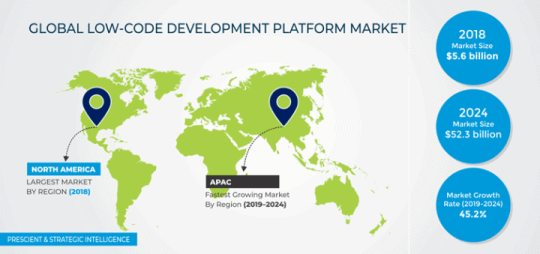
With these platforms, the web and mobile developers do not write long codes; instead, the entire application development process includes visual elements along with drag and drop actions.
What is low-code development?
Low-code development is an application development approach that accelerates the development process by infusing visual elements and eliminate the need for manual coding for faster delivery.
Features of Low-code development platforms
A low code development platform incorporates extensive features that make it a must-have platform for business organizations to stay ahead of the competition. These features include:
Visual scripting: You can create an application module or whole application in a drag and drop like interface where you don’t have to write a single line of code. As programming code is more visual, it needs less thinking to be understood.
Visual modeling: Allows converting business ideas into workflows with UI elements such as data models, notifications, events and more.
Data remodeling: Seamlessly converts data models into APIs and relational tables.
Mobility: Integrated with mobility mechanism that makes the application more responsive over mobile devices.
Security: Access management features give you full control over the application. You can manage who can view your application and when.
App life-cycle management: Low code development principles simplify deployment and maintenance while making the app more scalable.
Rules engine: Simplifies the process to define business logic through an in-built rule engine. Rule engine provides a development environment for coders to create applications through GUI and not actual programming code.
Hosting: Any rich user interface requirement can be settled by hosting custom code through the low development app platform.
Integration: Easy integration with third-party applications and systems via APIs and connectors.
Components of low-code development platform
Low code platform, also known as Rapid Application Development, allows both professional developers and non-developers like business managers or any IT professional who doesn’t know how to code but understands business logic to build and deploy web and mobile applications in few days or weeks. Few components of Low-code development platform include:
Continuous integration: The automated system picks up the latest version from the build, repository, test and validates the master file for deployment.
Reusability: Allows developers to switch from one project to another with ease, identify and resolve the problems efficiently while increasing the quality of the application portfolio.
Omnichannel app development: One code base for different devices enable developers to target problems right from one single platform.
Openness and extensibility: Using Cloud-based architecture, the developers can deploy applications quite easily and efficiently.
Performance: The integration of automated testing and quality monitoring makes these apps perform faster.
Connectivity: Empower users with extensive connectivity over IoT devices, Blockchain, Artificial Intelligence, and Machine Learning without the need to have expert knowledge.
Deployment: Public cloud integration offers scalability and reliability with a reduced need for maintaining the infrastructure.
youtube
What can you build with low code?
Internal applications: Low code allows creating beautiful, and advanced applications for the Business internal processes.
Customer-facing applications: Enables creating digital customer-focused and field focused applications with an immersive UI while incorporating easy accessibility and extensive usability.
Legacy modernization apps: Transform your CRM, ERP and other core business systems through low code development capabilities without impacting the regular business activities.
Operational efficiency apps: Low code application development helps to build apps that boost your business productivity to a remarkable extent.
Benefits of a low-code development platform
Low code application development is easy to use, integrate and deploy in the business infrastructure. Not only it is easy to build an app with the no-coding approach, but these apps are highly efficient and work on cross-platform devices. Some of the scalable features include:
Improved agility: Accelerate digital innovation and business transformation by building a responsive application using a quick to build approach.
Higher productivity: Lesser coding with automated testing, database handling, scaling, one-click deployment capabilities results in yielding higher productivity and better results.
Decreased cost: Low code application development doesn’t demand to deploy hardware components as its cloud-based and thus proves to be a cost-efficient app development approach.
Effective risk management and governance: Since everything is available on the cloud and can be managed from one interface, risk management becomes easier.
Faster transformation: With a low code development approach, the developers can build more apps in lesser time. Easy deployment and management results in faster business transformation.
Change easily: With drag and drop elements and simple visual components, it’s extremely easier to change the application at any point in time.
How low-code platforms are transforming software development?
Low code platforms integrate powerful features such as citizen development that enables users with even no technical knowledge to code the program. These single interface platforms are cloud-based and offer ease of usability that adds to transform software development.
5 best low-code development platforms in 2020
1) DWKit
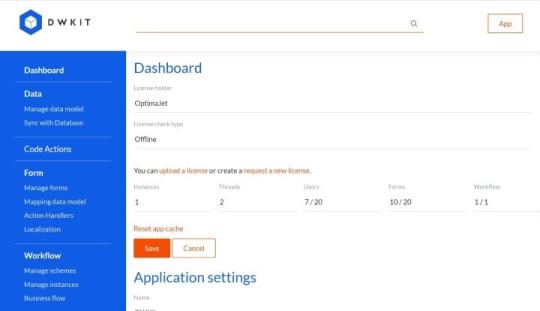
DWkit is an efficient low code development program packed with effective features. It is a form builder, security, workflow, and data mapping application.
Link: Web
2) Appian

The platform offers native AI services with zero-code integration to ML/AI platforms through Amazon AWS, Microsoft Azure and Google Cloud.
Link: Web
3) Visual LANSA

Visual LANSA is an effective and powerful platform for developing web, mobile, and desktop applications. It features extensive application testing, deployment, and integration tools.
Link: Web
4) KissFlow
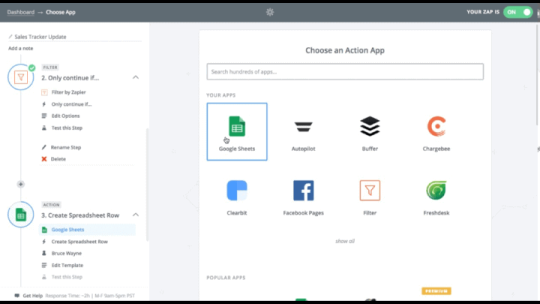
Eliminates the need to code your application completely with KissFlow. Drag and drop tools to build tasks and fields as well as to add and edit various fields.
Link: Web
5) Mendix
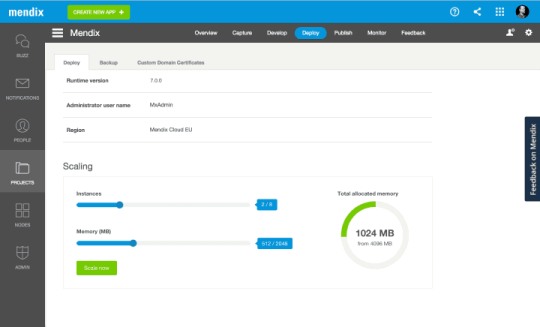
Integrates highly advanced visual modeling tools and reusable components. Agile project management capabilities make it more powerful.
Link: Web
How TechAhead can help you in low-code development?
If you are looking for a low code development platform for your business and don’t know where to get started, TechAhead is here to help you build enterprise-grade apps quickly and efficiently for complete business transformation.
Final words
Low code platforms allow developers to create mobile and web apps without coding using drag and drop options. These platforms are an efficient way for mobile app development companies to get more done in case of apps with limited functionality.
Frequently Asked Questions (FAQs)
What is the low-code development platform? Low code development is an application development platform that eliminates the need for heavy coding while building an app. It includes visual elements and drag and drop tools that enable building creative, powerful and responsive apps for businesses.
Does low code mean no-code? Low code development platforms include coding, but not as much as that of traditional application development approaches.
How do low code platforms facilitate digital transformation? Applications build using low code platforms help businesses cope up with the rising market demands and help them stay ahead of the competition.
How to identify a low code platform for enterprise-grade apps? A good low code development platform is one that includes capabilities such as:
Cognitive intelligence
Change management
Simple prototype development
Citizen development
Easy requirement gathering
Integration readiness
1 note
·
View note
Text
The Top Secrets of Mobile Marketing

The increase in mobile apps over a couple of years has given a great push to app development company and mobile marketing. A study by ComScore shows that by the end of 2010 almost half of all the mobile users were using mobile media like web browsers, apps, etc.
With this fast-track growth of mobile application industry, mobile marketing is shooting up high in the air. In this blog we would be discussing about the top secrets of mobile marketing a mobile marketer need to know to market an app.
Here are the Top Secrets of Mobile Marketing:
Research to Target your Market

To advertise mobile app one needs to find the audience who are to be targeted. Mobile marketing is not restricted to advertise through banners and app advertising instead the SMS marketing can also be done for smartphone users. Location-based mobile marketing campaigns are quite new and very less used. So it gets important to match the medium with our target demographic.
There are many sources for data on mobile and app usage including Google, Statista, and ComScore etc. the data from these sources can be used for planning of campaign at early stages of our campaign to ensure that we reach our intended audience.
Goal Identification

Setting a KPI [Key Performance Indicator] is a standard and effective practice for any sort of marketing campaign. With the various metrics involved in online and mobile marketing the evaluation of marketing campaign is no more a tough job as it used to be in traditional marketing. What do you want from your mobile marketing campaign? Brand awareness? Purchases of a product or service? Leads? Traffic to your website? These are all very different goals so you need to set your KPI’s so that you may measure success of your campaign by various metrics.
Data Collection

Mobile marketing provide you a pretty good power that lets you track each and every available metrics. After your KPI’s are determined and you start tracking them to find the effectiveness of your campaign.
Track the phone calls, QR codes scanned, landing page visits, text messages sent, subscribers, unique visitors, online leads and more. Then you must collect the available data. While tracking landing pages of mobile marketing, if possible do include server-side tracking scripts, as most mobile phones are with disabled JavaScript by default. Though Google Analytics provides specific codes for mobile which can be used instead of or in addition to their JavaScript tracking code.
The data will be spread across various tools like SMS marketing platform, Google Analytics, Search Console or whichever tool you may be using. So extract the raw data from these sources of yours and combine them in Spreadsheets or docs to use them and represent the overall picture of how your campaign is flowing.
Building and Nurturing Relationships

The primary goal of the mobile marketing campaign could be to build brand awareness, drive traffic, increase downloads or get sales but this is only the beginning, we need to use this opportunity to build relationship with our customers like asking them to participate in contest or review writing or getting them featured as fans or by other methods like offering them some discounts or some other rewards by proper usage of Calls to Action in your app and mobile marketing campaigns.
Long Planning

A big mistake which is made in online or mobile marketing is that marketers or product owners wait before launching of their mobile app and they get stuck to a point where they get no chance to succeed, though they would have avoided it if they would have been bit logical in their approach. If your application is getting developed you must get it developed much before the cream season time of that industry gets closer so that you may have a through testing done a006Ed the app gives you good revenue like you can get your mobile app ready before holidays or festive season depending upon the industry domain of the app.
Real Time Monitoring and Optimization
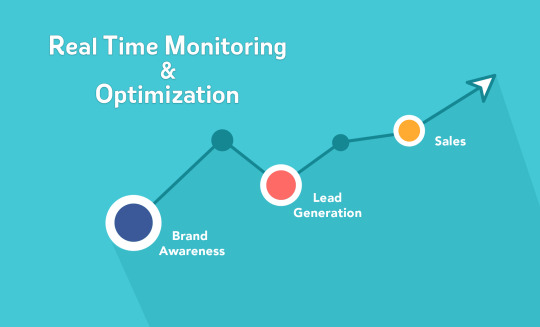
Mobile marketing campaigns have a great advantage that one can make changes and monitor them in real time. Monitoring the campaigns performance metrics and analyzing them to reach a point and make optimization to fix/improve issues in the app that so that app may keep on evolving to provide better user experience and an engaging app which will also make your app fit under the concept of agile app development.
Mobile is becoming real market king as it being wireless channel of advertising is giving us power to achieve goals through various sort of marketing campaigns whether it be products sale, lead generation, visitors traffic to brand awareness.
0 notes
Text
youtube
Mobile App Development Companies
Companies that specialize in providing mobile app development services. These companies have expertise in developing apps for different platforms and offer services such as app design, development, testing, and maintenance!
#https://www.techaheadcorp.com/services/mobile-application-development/#mobile app development companies#mobile app development services#mobile app development frameworks#mobile app development platforms#mobile app development process#mobile app development tools#mobile app development trends#mobile app development technologies#mobile app development cost#mobile app development best practices#mobile app development lifecycle#mobile app development for startups#mobile app development for small businesses#mobile app development for enterprise#mobile app development for e-commerce#mobile app development#iOS app development#Android app development#cross-platform app development#app development process#app design#app testing#React Native app development#Flutter app development#Xamarin app development#mobile app consulting#mobile app strategy#custom app development#enterprise app development
0 notes
Text

Mobile App Development
The process of creating software applications for mobile devices, such as smartphones and tablets. It involves designing, coding, testing, and launching mobile apps for various platforms!
#https://www.techaheadcorp.com/services/mobile-application-development/#mobile app development companies#mobile app development services#mobile app development frameworks#mobile app development platforms#mobile app development process#mobile app development tools#mobile app development trends#mobile app development technologies#mobile app development cost#mobile app development best practices#mobile app development lifecycle#mobile app development for startups#mobile app development for small businesses#mobile app development for enterprise#mobile app development for e-commerce#mobile app development#iOS app development#Android app development#cross-platform app development#app development process#app design#app testing#React Native app development#Flutter app development#Xamarin app development#mobile app consulting#mobile app strategy#custom app development#enterprise app development
0 notes
Text
youtube
Web Development Company
A professional firm specializing in web development services, delivering high-quality websites and applications!
#https://www.techaheadcorp.com/web-application-development/#web application development#custom web development#web development services#responsive web development#mobile app development#software development#front-end development#back-end development#full-stack development#UI/UX design#web development company#website development#application development#e-commerce development#database development#API development#cloud-based development#CMS development#JavaScript development#PHP development#Python development#Ruby on Rails development#Java development#.NET development#Laravel development#TechAhead Corp#TechAheadCorp#techaheadcorp.com#Youtube
0 notes
Text

Responsive Web Development
Creating websites that seamlessly adapt and display correctly on different devices and screen sizes!
#https://www.techaheadcorp.com/web-application-development/#web application development#custom web development#web development services#responsive web development#mobile app development#software development#front-end development#back-end development#full-stack development#UI/UX design#web development company#website development#application development#e-commerce development#database development#API development#cloud-based development#CMS development#JavaScript development#PHP development#Python development#Ruby on Rails development#Java development#.NET development#Laravel development#TechAhead Corp#TechAheadCorp#techaheadcorp.com
0 notes
Text
Web Development Services

Transform Your Business with Professional Web Development Services
We at TechAhead are always at the forefront of innovation, triggering a digital revolution by empowering startups, enterprises, and corporations to leverage the power of web platforms and web apps. In the past 12+ years, we have developed some of the revolutionary and disruptive web platforms, web apps, mobile apps, and IoT solutions that have positively impacted millions of users, and hundreds of businesses. Here are some inspiring success stories.
Web Development: Everything you need to Know
Why should I opt for web development services?
If you are a business owner: offline with physical stores or digital with social media stores; in both cases, you will need a web platform to showcase your products/services to a larger mass of eager audience. With web development services, you can build and launch your web platforms, and attract millions of new users.
How to choose a reliable and trusted web development partner?
Checking the past experiences and expertise of the web development service provider is of paramount importance while selecting them. Check out what their clients are saying about them, their market sentiments across renowned listing portals such as Clutch, and find out more about their team, their management, and their vision about the future.
Why TechAhead for web development services?
TechAhead has created ripples across the IT services domain by delivering stunning results and success to hundreds of global businesses. With 12 years of experience and delivering 2000+ mobile apps, web platforms, IoT solutions, and Cloud solutions, TechAhead is redefining excellence and innovation.
Which are some of the top brands who have partnered with TechAhead?
TechAhead has empowered some of the biggest global brands like American Express, AXA, Disney, Audi, ICC, and others to unleash more sales, more revenues, more profits and assisted them to understand their customers in a never-seen-before manner. Overall, TechAhead has served more than 600 global businesses and that includes startups, SMEs, enterprises, corporations, and Fortune 500 organizations.
What about data security and integrity, along with user privacy?
We consider data security and integrity as a critical and non-compromising feature, which no service provider can ignore today. It’s our ironclad promise that our client’s data and user privacy is protected and secured at any cost. We deploy some of the most advanced data security mechanisms such as encryption, secured keys, firewall, and more to safeguard our client’s data and user’s privacy.
Will TechAhead also provide support and maintenance services?
Yes, of course! Once the web platform is up and running, we will closely monitor the performance, tweak and twist the existing deployments and optimize the performance for ensuring the highest ROI for our esteemed clients. Our managed services offer more advanced support and maintenance services that you should consider for better management and optimization of the web platforms.
TechAhead Corp provides high-quality web application development services. With a focus on custom web development, responsive design, and software development, they help businesses enhance their online presence and drive growth. Their team of experts delivers innovative and user-centric solutions tailored to meet each client's specific needs. Trustworthy and committed, TechAhead Corp is a trusted provider in the industry, dedicated to helping businesses disrupt their market and achieve success!
youtube
#https://www.techaheadcorp.com/web-application-development/#web application development#custom web development#web development services#responsive web development#mobile app development#software development#front-end development#back-end development#full-stack development#UI/UX design#web development company#website development#application development#e-commerce development#database development#API development#cloud-based development#CMS development#JavaScript development#PHP development#Python development#Ruby on Rails development#Java development#.NET development#Laravel development#TechAhead Corp#TechAheadCorp#techaheadcorp.com#Youtube
0 notes